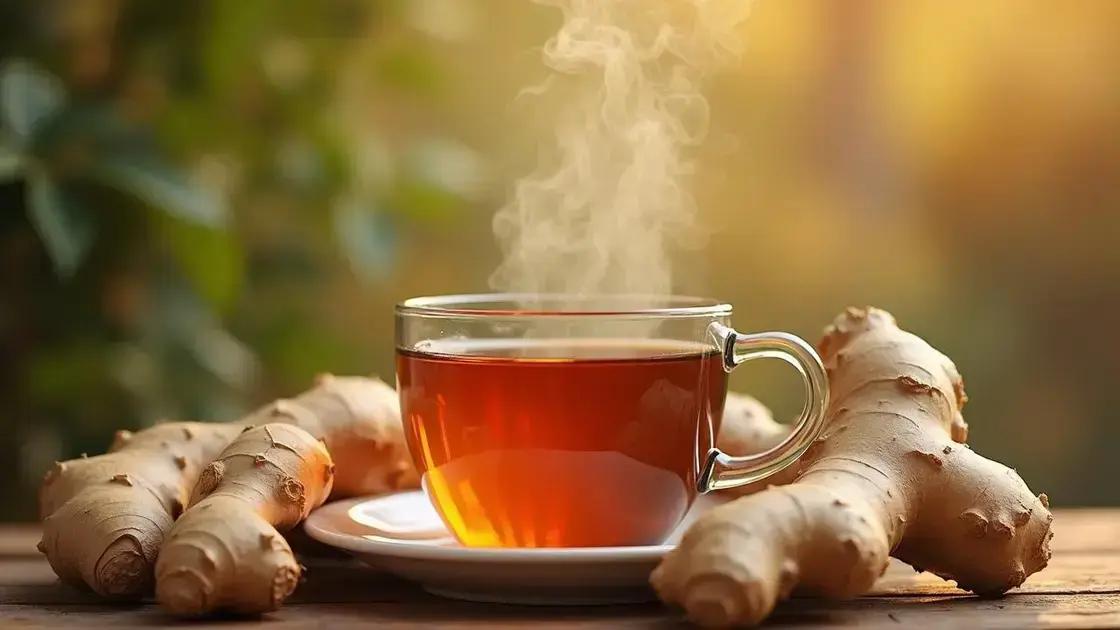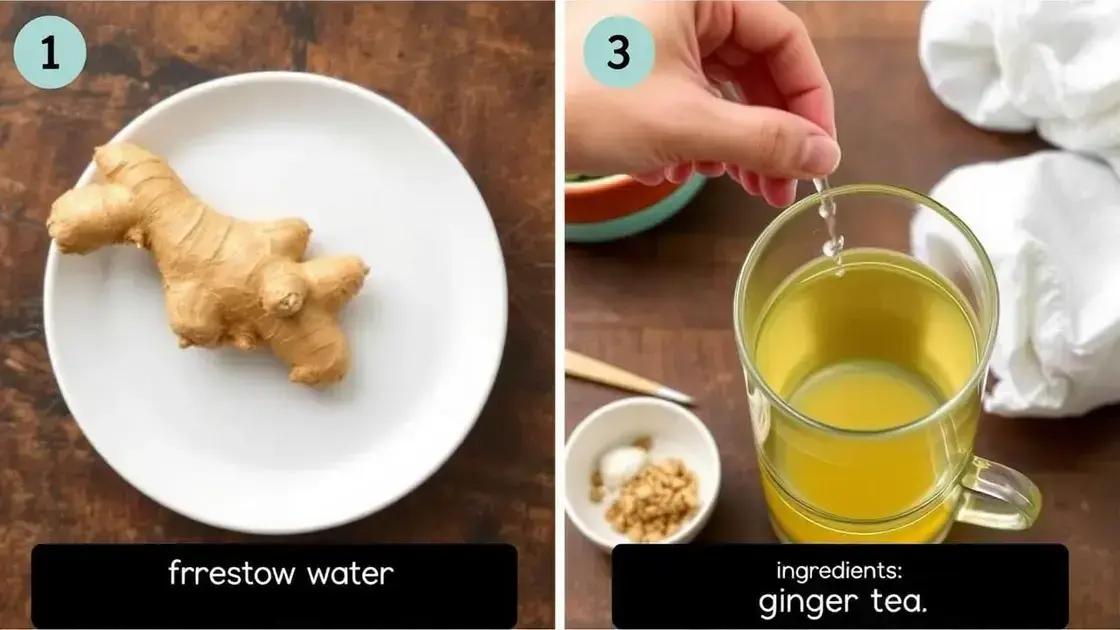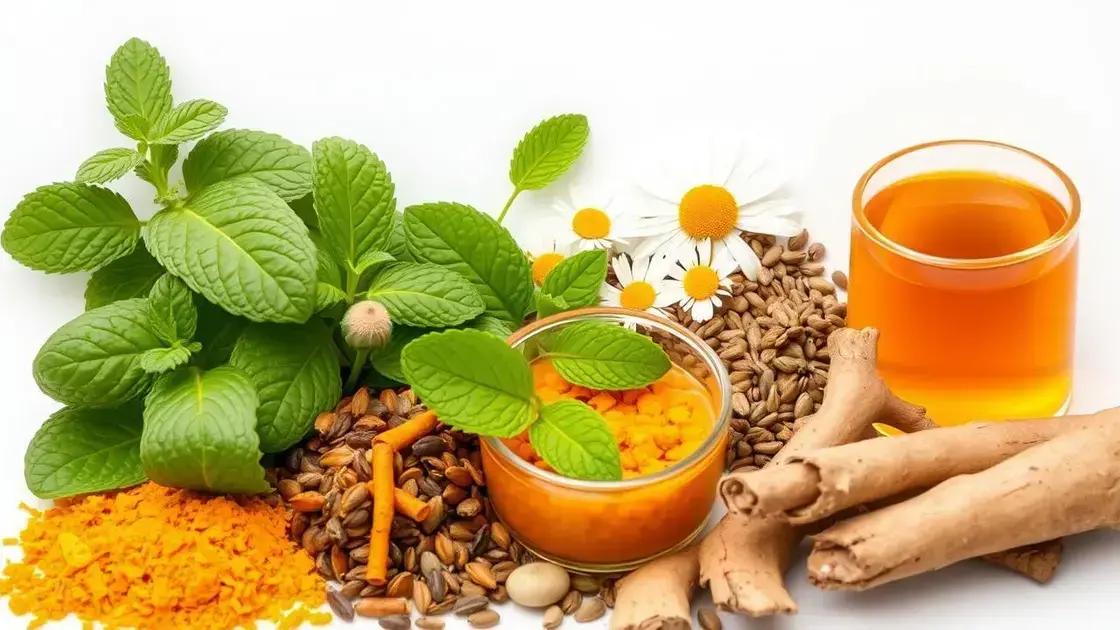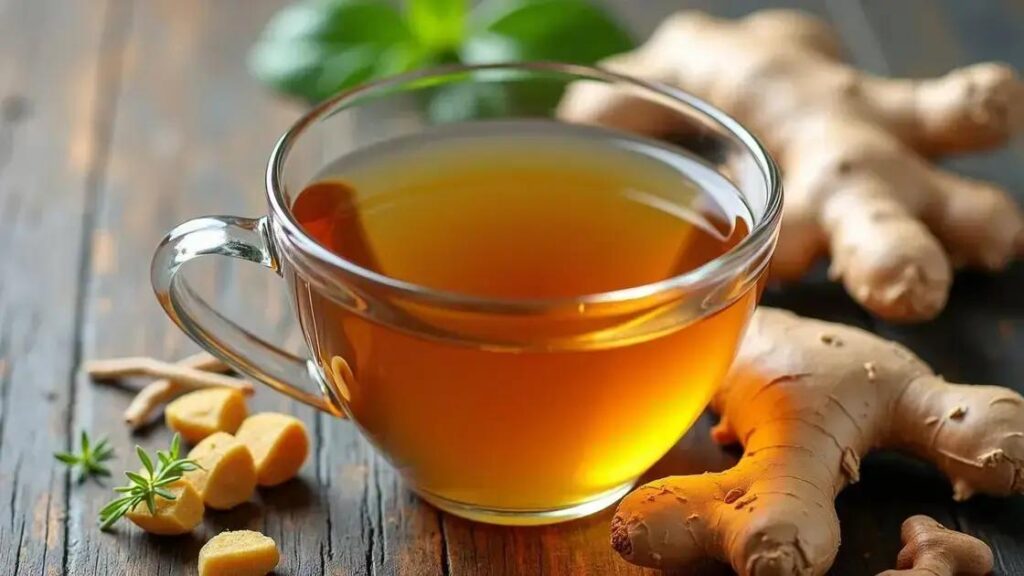Ginger tea is a natural remedy for digestive relief, known for its ability to soothe discomfort, reduce bloating, and promote healthy digestion. To prepare it, steep fresh ginger in hot water, and consider incorporating other herbal remedies like peppermint and chamomile for added benefits. Enjoy 2-3 cups daily before meals for optimal results.
Ginger tea is a powerful remedy for digestive relief, packed with natural compounds that soothe discomfort and promote healthy digestion. How to use ginger tea for digestive relief is not just about brewing a warm cup; it’s about understanding its benefits, preparing it correctly, and incorporating it into your daily routine. In this article, we will explore the remarkable benefits of ginger tea, provide easy preparation tips, and share best practices for maximizing its digestive benefits.
Understanding the Benefits of Ginger Tea

Ginger tea has been treasured for centuries for its remarkable health benefits, especially regarding digestion. Understanding the benefits of ginger tea can help you incorporate this natural remedy into your daily routine for enhanced digestive health.
Soothing Digestive Discomfort
This herbal tea is known for its ability to soothe stomach issues, such as bloating, gas, and indigestion. The compounds in ginger, like gingerol and shogaol, work to relax the gastrointestinal tract and speed up the digestion process.
Anti-inflammatory Properties
Ginger contains powerful anti-inflammatory properties that can reduce inflammation in the digestive system. This makes it an excellent choice for people suffering from conditions like irritable bowel syndrome (IBS) or gastroenteritis.
Enhancing Nutrient Absorption
Drinking ginger tea may improve your body’s ability to absorb nutrients from food. This is particularly beneficial for those with digestive issues, as proper nutrient absorption is essential for overall health.
Promoting Regularity
Regular consumption of ginger tea can promote better bowel movements. It helps stimulate digestion and can alleviate constipation, ensuring that waste is expelled effectively from the body.
Incorporating ginger tea into your daily routine can provide significant benefits for your digestive health, making it a natural go-to remedy for relief.
How to Prepare Ginger Tea for Digestive Relief

Making ginger tea for digestive relief is simple and requires just a few ingredients. Follow these steps to prepare a soothing cup.
Ingredients You’ll Need
- 1-2 inches of fresh ginger root
- 2 cups of water
- Honey (optional)
- Lemon (optional)
Step-by-Step Preparation
1. Start by washing the fresh ginger root thoroughly to remove any dirt.
2. Peel the ginger using a spoon or vegetable peeler. Once peeled, slice the ginger into thin pieces. The thinner the slices, the more flavor will be released.
3. In a small saucepan, bring 2 cups of water to a boil.
4. Add the sliced ginger to the boiling water. Reduce the heat and let it simmer for about 10-15 minutes. The longer it simmers, the stronger the flavor will be.
5. After simmering, remove the saucepan from heat and allow it to cool for a minute.
6. Strain the ginger tea into a cup using a fine mesh strainer or tea infuser to remove the ginger pieces.
7. Optionally, sweeten your tea with a teaspoon of honey and add a squeeze of lemon for added flavor and health benefits.
Tips for Perfect Ginger Tea
To enhance the flavor, consider adding a cinnamon stick or a few mint leaves while the tea simmers. Adjust the amount of ginger based on your preference for spice. Enjoy your ginger tea warm for the best digestive relief.
Best Practices for Consuming Ginger Tea

To get the most out of ginger tea for digestive relief, there are several best practices to follow. Here are some important tips:
Timing is Important
Drink ginger tea before meals for best results. Consuming it 30 minutes before eating can help prepare your digestive system. This allows the compounds in ginger to start working on food digestion.
Stay Hydrated
While ginger tea is beneficial, it’s essential to maintain overall hydration. Drinking water throughout the day will support your digestive system. Aim for 6-8 cups of water daily.
Moderation is Key
Like any remedy, moderation is crucial. Limit your intake to 2-3 cups of ginger tea per day to avoid potential side effects such as heartburn or stomach upset.
Listen to Your Body
Everyone’s body is different. If you experience any discomfort after drinking ginger tea, reduce the amount consumed or consult a healthcare professional. Your comfort should always come first.
Combining Ingredients
For added benefits, consider combining ginger tea with other ingredients like peppermint or chamomile. These can enhance flavor and further aid digestion.
By following these practices, you can enjoy the full benefits of ginger tea and support your digestive health effectively.
Other Herbal Remedies for Digestive Health

While ginger tea is an excellent choice for digestive relief, there are other herbal remedies that can also support digestive health. Here are some popular options:
Peppermint
Peppermint tea is known for its soothing properties. It can help relax the muscles of the gastrointestinal tract, which may reduce symptoms like bloating and gas. Sip peppermint tea after meals for relief.
Chamomile
Chamomile tea is another great option. It helps calm the stomach and aids in digestion. Drinking chamomile tea can also relieve stress, which can positively impact your digestive health.
Fennel Seeds
Fennel tea, made from fennel seeds, is known to ease bloating and gas. It can stimulate digestion and promote healthy bowel movements. Chewing on fennel seeds after meals is also an effective practice.
Turmeric
Turmeric root has anti-inflammatory properties and can improve digestion. Drinking turmeric tea can support liver function, which plays a vital role in digestion. Try adding turmeric to your daily tea routine.
Licorice Root
Licorice root tea can soothe gastrointestinal issues. It has properties that may help with heartburn and stomach ulcers. However, it should be consumed in moderation.
Integrating these herbal remedies with ginger tea can enhance your digestive health and provide varied benefits. Experimenting with different teas can help you find what works best for your needs.
Embracing Ginger Tea for Digestive Health
Incorporating ginger tea into your daily routine can significantly enhance your digestive health. Its anti-inflammatory properties and ability to soothe discomfort make it a powerful ally in relieving digestive issues.
Understanding how to prepare ginger tea, following best practices for consumption, and exploring other herbal remedies can create a holistic approach to digestion. Whether you enjoy it alone or in combination with other herbal teas like peppermint and chamomile, ginger tea offers a flavorful pathway to well-being.
Ultimately, prioritizing your digestive health with ginger tea and these additional remedies will empower you to feel your best every day.
FAQ – Frequently Asked Questions about Using Ginger Tea for Digestive Health
What are the main benefits of ginger tea for digestion?
Ginger tea helps soothe digestive discomfort, reduces bloating and gas, and promotes better nutrient absorption.
How often should I drink ginger tea for digestive relief?
It’s best to drink ginger tea 2-3 times a day, ideally before meals, to support digestion.
Can I combine ginger tea with other herbal remedies?
Yes, combining ginger tea with herbal teas like peppermint, chamomile, or turmeric can enhance digestive health benefits.
Are there any side effects of drinking ginger tea?
While generally safe, excessive consumption of ginger tea can cause heartburn, stomach upset, or diarrhea in some individuals.
How can I prepare ginger tea at home?
To prepare ginger tea, peel and slice fresh ginger, boil it in water for 10-15 minutes, then strain and enjoy. Add honey or lemon for flavor.
What other herbal remedies can support digestive health?
Popular herbal remedies include peppermint, chamomile, fennel seeds, and licorice root, all of which provide additional support for digestion.













